Construction estimating software and so much more, starting at $99/month
Fast and accurate estimates, plus better proposals that win you more work. Request a personalized walkthrough of Knowify today!
Leverage budget-backed data and reusable templates that automatically adjust for that job’s pricing model – whether it’s fixed price, unit-based, cost-plus, time & materials, or AIA-style billing.
Turn estimates into proposals in a few clicks. Include your company branding, terms & conditions, and attachments – or meet with the Knowify team and get them fully customized.
Give clients a secure portal that allows for revision requests, and notifies you as soon as contracts are sent, viewed, and signed.
Go from an estimate that accurately reflects your costs to a professional client-facing proposal that includes your markup, key project documents, client references, and more, in under 60 seconds. Once your client signs the proposal, it becomes a legal-binding agreement, simplifying the approval process and speeding up your project workflow.
Estimate and bid on any kind of job, with support for fixed price, unit-based, cost-plus, time & materials, and AIA contracts. More flexibility means you can take on more business, and drive more revenue.
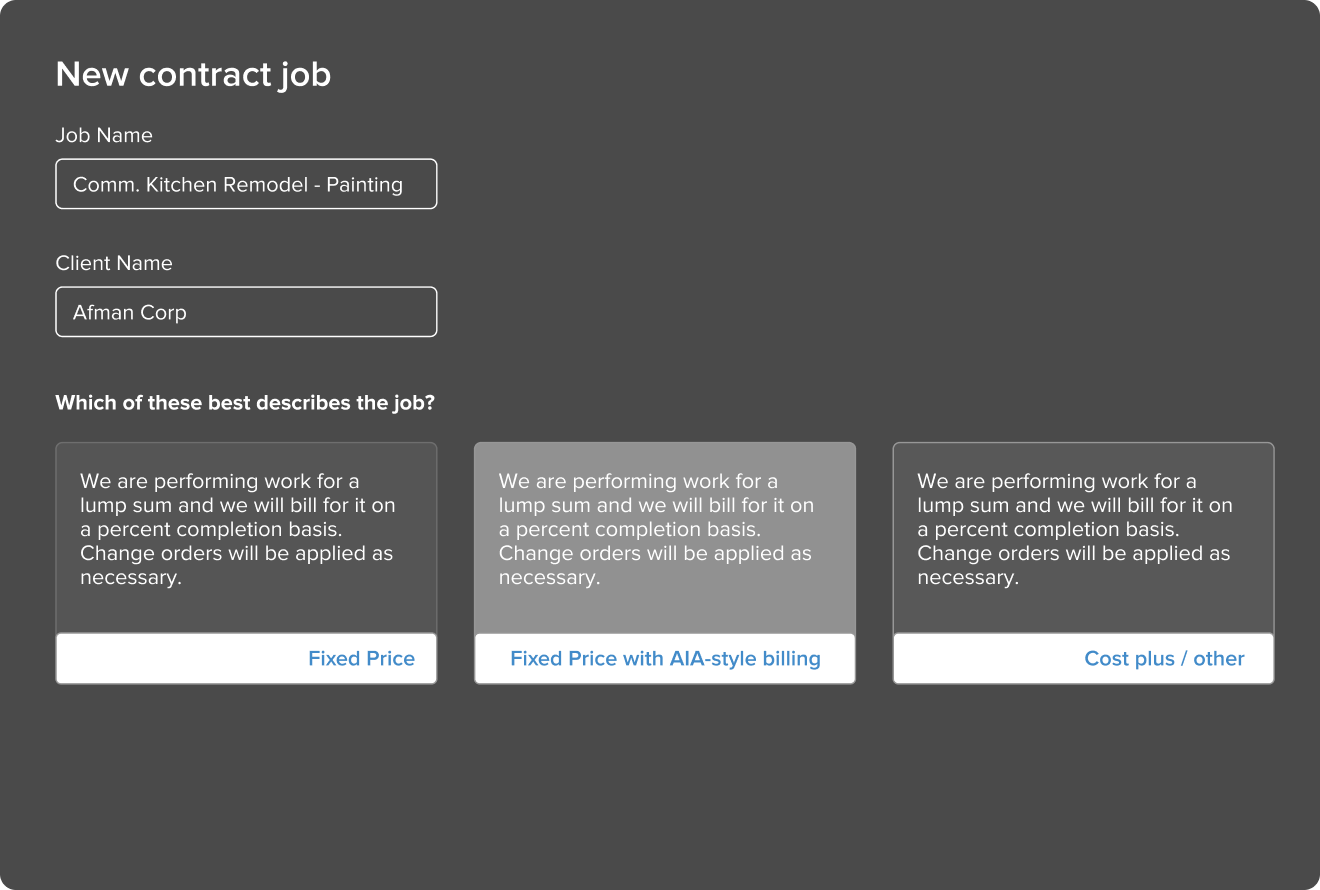
Pull in items from your project budget to create project estimates in 60 seconds or less. Watch your projected profitability change in real-time as you edit markup across line items.
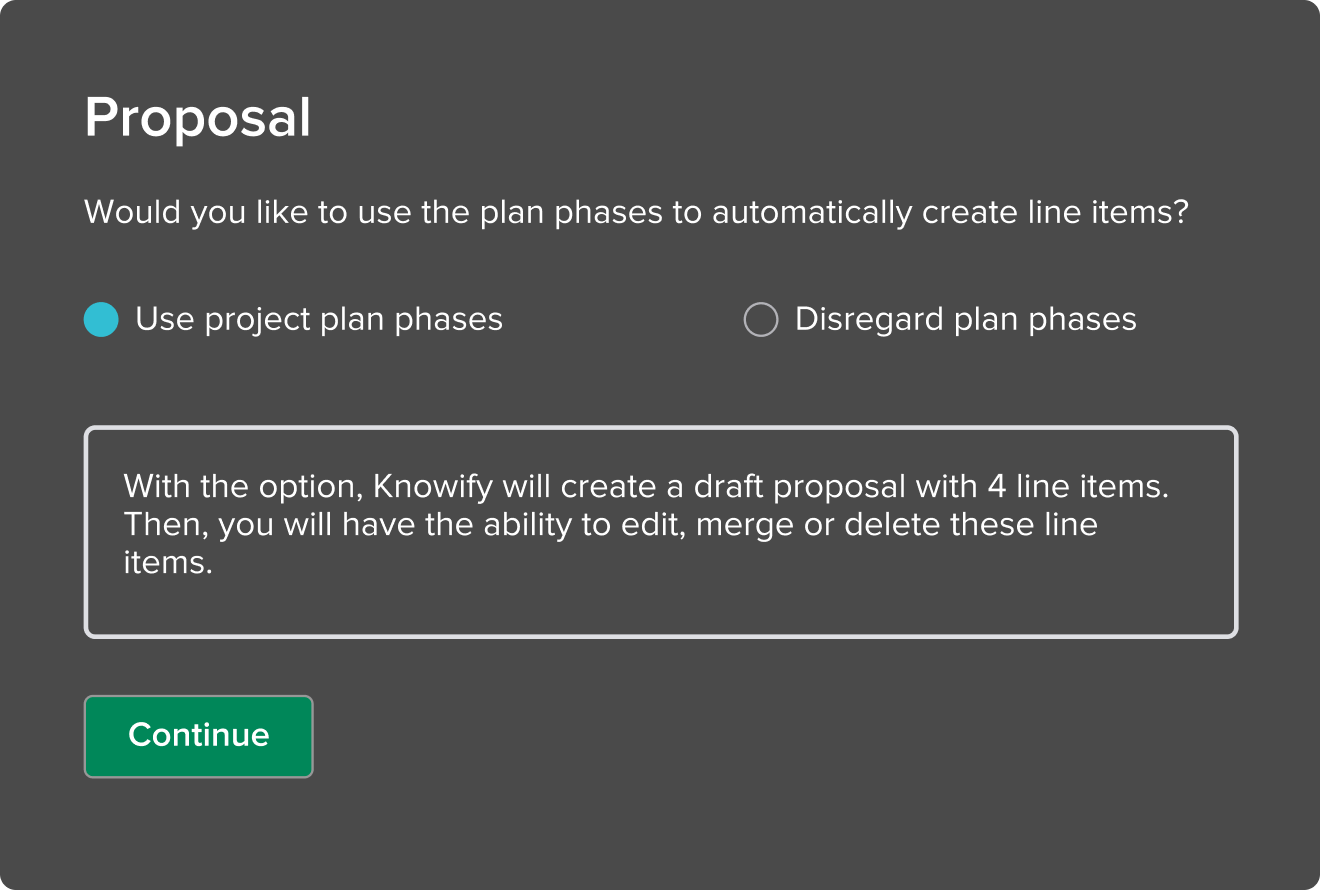
Create reusable budget templates for entire projects or specific phases, so you’re not starting from scratch on each job and can bid faster. Save budgets from past projects for easy future use.
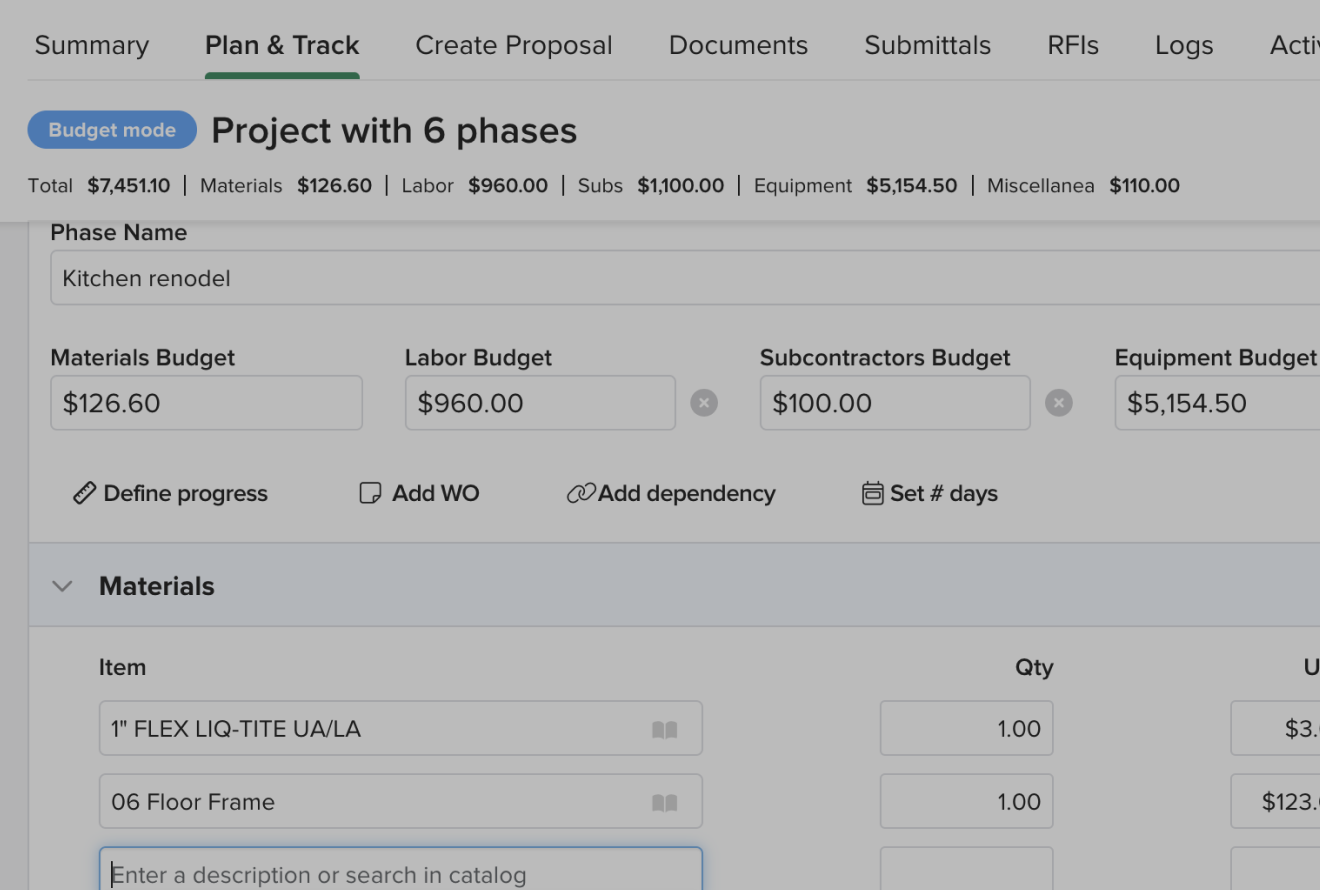
Create reusable templates that automatically estimate the cost of a line item based on labor and material costs, & custom units of measurement, without any manual calculations.
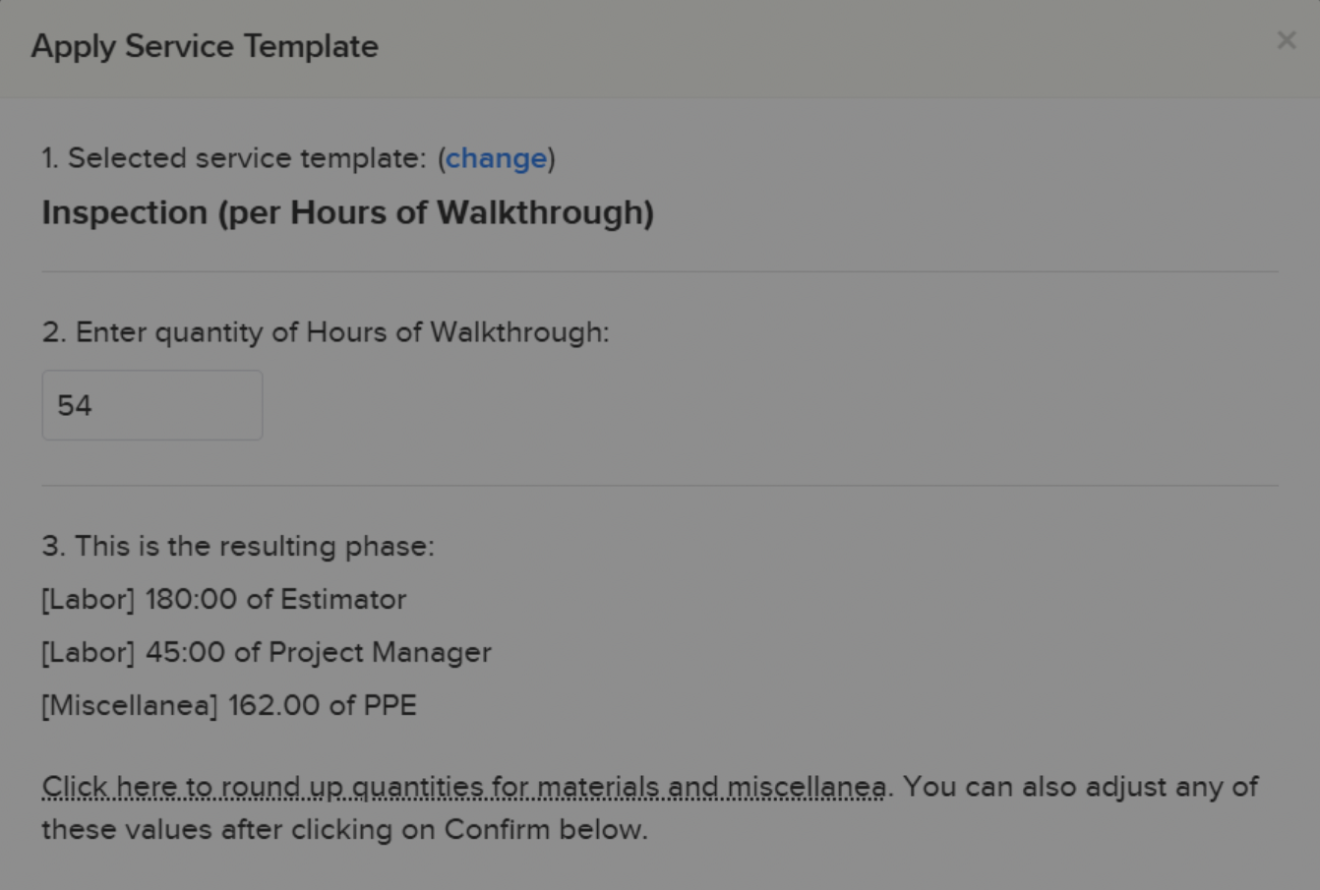
Send professional, competitive bids that proudly show your company’s brand, along with any relevant attachments, & terms and conditions – or meet with the Knowify team for a consultative session where we’ll work with you to build the perfect proposal template for your business.
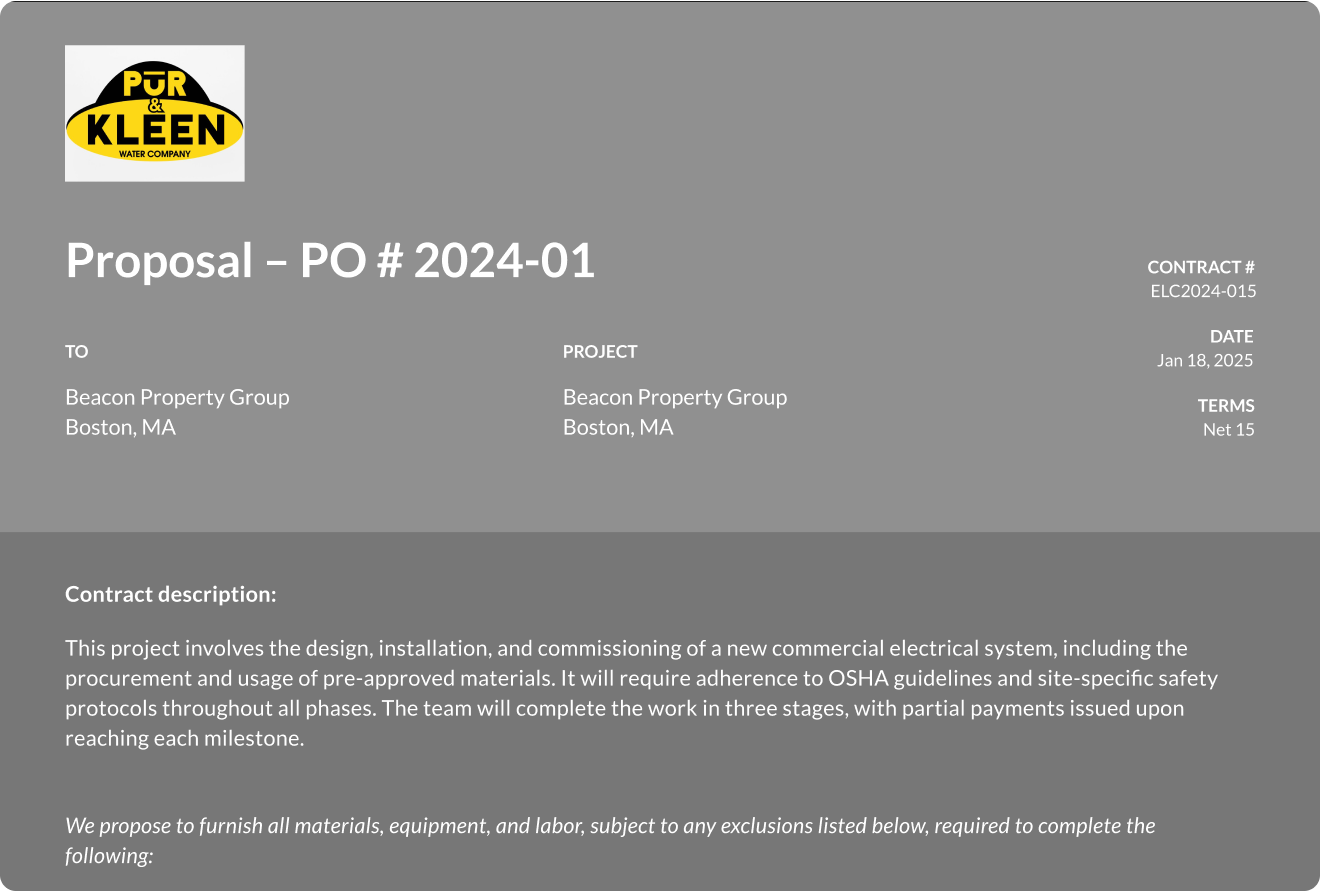
Send legally-binding, e-signable contracts. Send a link with every proposal that takes clients to a secure portal where they can leave comments, requests revisions, or sign for the job. Get real-time notifications as your contract is sent, viewed, and opened.
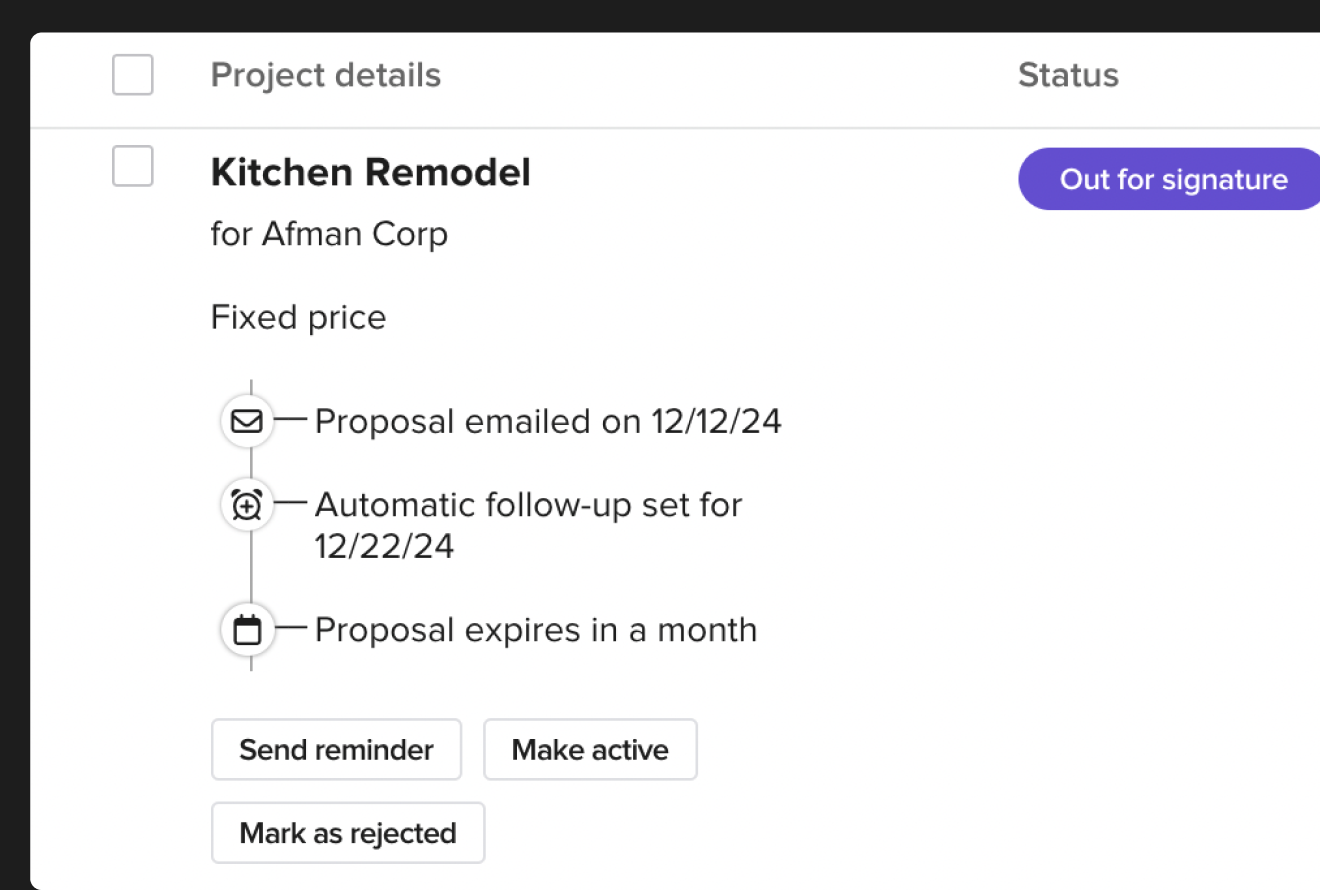
Fast and accurate estimates, plus better proposals that win you more work. Request a personalized walkthrough of Knowify today!
Most construction management software should give contractors the ability to create cost estimates for clients. Knowify allows you to quickly create a budget based on a project’s scope of work that you can markup to cover your overhead and target profit margin. You can then turn this into a professional e-signable proposal in minutes. Knowify includes several proposal templates out-of-the-box. If you don’t see something you like, the team will work with you to create a custom, reusable proposal template free of charge.
Construction estimating software typically provides the following benefits:
A construction proposal is a document created by a contractor that’s sent to a potential client with the goal of outlining a project including estimated costs and a project timeline, while also convincing the client that the contractor’s business is the right one to complete the work.
It’s best to think of a proposal as both informative and persuasive. Doing so will guide the information you include in your proposals.
A typical construction proposal is going to include information like a description of the project, detailed cost estimates, an estimated timeline, and payment terms.
Since a proposal is also a sales document, it should include things like company information, references, and even examples of similar work you’ve done in the past.
It’s important that your proposal appears professional as this can separate you from your competition. You’ll want to ensure it’s formatted correctly, includes contact information, a company logo, and a tagline if you have one.
Lastly, you’ll want to make it easy for your potential clients to receive and sign your proposals. Ideally, your construction management software allows you to create proposals, send them over email, and have your clients e-sign them without having to print the proposal or do any extra work.
Yes, Knowify allows you to easily customize your proposals with your company logo, terms and conditions, and more. If the proposal doesn’t look exactly how you’d like it to, Knowify’s team is standing by to help you customize further, and create a proposal that looks exactly how you’d like it to.
Knowify isn’t just an estimating software. It’s an all-in-one solution that allows you to easily send out professional-looking proposals for signature electronically, and once those proposals are signed and accepted, the job automatically becomes active in Knowify, so you can start tracking your progress and costs against your budget.
If you create a project budget before sending out your proposals, Knowify allows you to easily add markup to that budget, and turn it into a client-ready proposal in just a few clicks. Once you’ve won the project, you’ll be able to easily track material quantities, labor hours, and other key costs against your estimate and proposal using Knowify’s project management and job costing tools. All of your project data, AR, and AP sync between Knowify and your accounting software, so your project financials are always up-to-date, job costing data is extremely accurate, and you can reference it when creating future project estimates.
Knowify also stands out against other construction estimating software by being a cloud based software – meaning you can access up to date estimate information from anywhere with an internet connection – whether you’re in the office or on the job site.
One thing to note – Knowify was designed from the ground-up to integrate with your accounting software, and has key features built specifically for trade contractors. As a result, general contractors may want to explore Knowify’s free version (a 14 day trial) to ensure that the estimating software is the right fit for their business.
Knowify offers tools to easily import takeoff data from construction software like STACK. Once you’ve pulled your data in, it’s simple to create budgets and estimates quickly.
A construction contract is a legally binding agreement between the contractor and the client that outlines the terms and conditions of a construction project. It includes important details such as the scope of work, project timeline, payment terms, and any other specific requirements related to completing the project.
The contract serves as a protection for both parties, ensuring that the project is completed as agreed upon and providing a framework for resolving any disputes that may arise during the construction process.
Contract management in construction refers to the process of managing contracts throughout the entire construction project. This involves overseeing the negotiation, creation, execution, and administration of contracts between various parties involved in the construction project, such as the owner, contractors, subcontractors, and suppliers.
The goal of contract management in construction is to ensure that all parties involved adhere to the terms and conditions outlined in the contracts, monitor progress, manage risks, resolve disputes, and ultimately deliver the project successfully.
Knowify’s contract jobs tool allows you to set up custom workflows for managing contracts throughout their lifecycle.